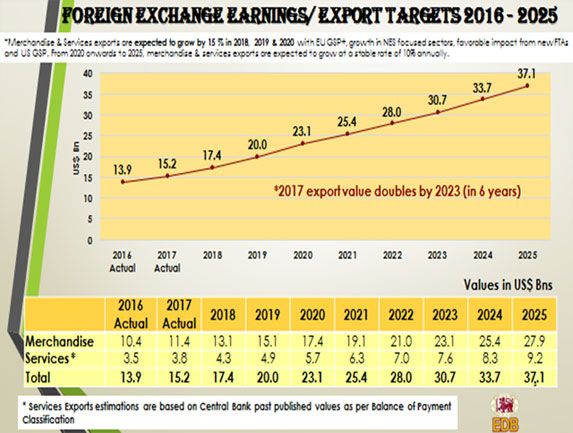The National Export Strategy (NES) launched by the Sri Lanka Export Development Board (EDB Sri Lanka) had paved the way for Sri Lanka to move away from the domestic economy-based economic strategy to an export sector-based economic strategy.
In order to fulfil the broader vision of NES, four strategic objectives have been identified for a five-year time frame, including;
Sri Lanka’s private sector, including small and medium-sized enterprises (SMEs), has been calling for a transparent regulatory framework that enables businesses and address challenges faced by Sri Lankan enterprises, reduce costs of doing business and improve export competitiveness. Therefore NES has prioritized the updating Sri Lanka’s regulatory environment by amending and reviewing a number of regulations to streamline trade procedures and allow the country to become an effective trade hub.
Strengthening Trade Support Functions (TSFs) that deliver trade information and promotional support, and quality compliance services are necessary to increase exporters’ performance in destination markets.
The improvement of the trade information and promotion function and the National Quality Infrastructure (NQI) benefits SMEs, emerging exporters and mature export industries of Sri Lanka, allowing the country to reach its export targets by the year 2025.

Foreign Exchange Earning & Export Targets 2016/2025
It is critical for Sri Lanka to become a recognized hub serving Asia and the world and to leverage its enormous shipping and logistics potential by strengthening its infrastructure, improving services and attracting the investment and skills required for sustainable growth.
While established export sectors such as apparel, tea, rubber and coconut products have proven their ability to compete in the world markets and are the backbone of Sri Lanka’s export performance; enablement and strengthening of new industries is a priority to enable faster export growth.
Find out more about the Implementation of NES Objectives